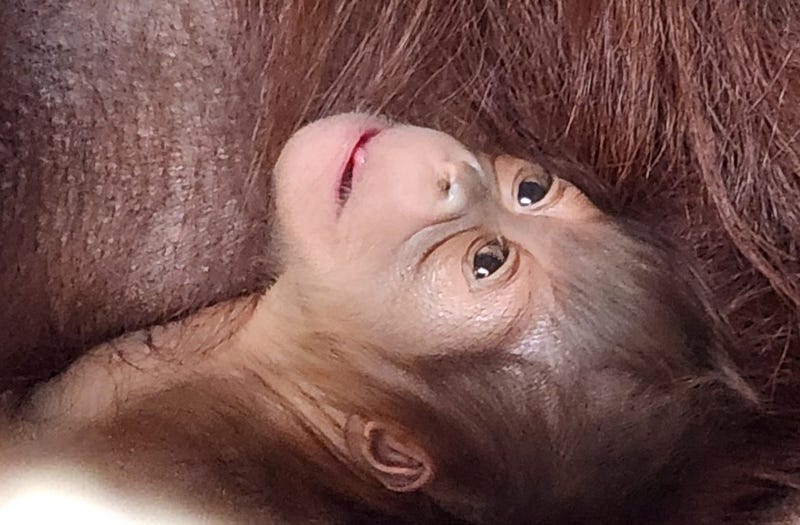
The L.A. Zoo Thursday is celebrating the arrival of its first baby orangutan in nearly 15 years.
The baby boy Bornean orangutan was born to 43-year-old mother Kamlim and 31-year-old father Isim on Oct. 10. Kalim and the baby have been bonding behind the scenes and recently made their public debut together.
Want to get caught up on what's happening in SoCal every weekday afternoon? Click to follow The L.A. Local wherever you get podcasts.
The infant can be seen at the zoo's Red Ape Rain Forest.
According to zoo officials, the baby is the first offspring between Kalim and Isim -- and Kalim's third baby. Before the baby arrived, Kalim's last child, Elka, had been the last orangutan born at the zoo.
"We are thrilled to welcome another new great ape to the zoo," Candace Sclimenti, curator of mammals, said in a statement. "This marks the first orangutan birth here since Elka was born nearly 15 years ago. Watching the orangutan group interact with the infant will be truly special, and we're excited for our guests to experience the joy of watching our growing orangutan family."
Zoo officials said that orangutans have the longest interbirth interval of all non-human primates, meaning a single infant is born and cared for until about seven to eight years of age before another infant is born.
Mothers spend their time teaching their young how to survive, what food to eat and how to avoid predators.
Megan Fox, a senior animal keeper for the zoo, called Kalim an excellent mother with years of wisdom to teach her new baby.
"Elka has grown to be a wonderful young orangutan because of the excellent job Kalim has done rearing and raising her over the last 14 years," Fox said in a statement. "Guests will now have an opportunity to see unique behaviors and interactions that haven't been at Red Ape Rain Forest in a very long time."
Zoo officials said Bornean orangutans, one of three species, are the world's largest arboreal mammals, spending about 90% of their time in trees. They use their long hands and grasping feet to grip branches and move through tree canopies.
Adult males are the most solitary of the apes and defend their territories from other males. Males are also about twice the size of females with an arm span of over seven feet.
Bornean orangutans are categorized as "critically endangered" by the International Union for Conservation of Nature. In the wild, their populations continue to decline due to climate change and human activities, such as habitat loss due to mining and clear cutting of forests for palm oil plantations.
Follow KNX News 97.1 FM
Twitter | Facebook | Instagram | TikTok
